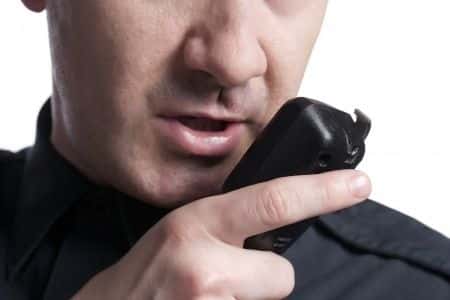Security Expert Witness Discusses False Customer Arrest at Pharmacy
Updated on
This case involves a customer who went to a pharmacy to return several bottles of a weight loss drink because the drink made her sick. The woman had bought the weight loss drink at another pharmacy. After the woman entered the second pharmacy, she went to look on the shelves to make sure that they sold the same weight loss drink as the other pharmacy. When she saw the same drink on the shelves, she put the empty bottle that she had drank in her purse and went to return the other bottles. The pharmacist had spotted the woman putting the empty bottle in her purse and called loss prevention and told them the woman had stolen a drink from the store. The loss prevention agents put their hands on the woman’s shoulders and then led her to a back room. The woman tried to explain, but the loss prevention agents would not listen to her. One of the agents then threatened to handcuff the woman. The loss prevention agents made several lewd and suggestive comments about the woman’s body and when she tried to use her cell phone to call 911, the agents snatched it from her and shoved her. The loss prevention agents called the police to report the incident and when the police came to the store, the woman told them she was in fear of being raped by the agents. One of the agents made a citizen’s arrest and the woman was taken to jail where she was charged with a felony and had to stay overnight. After she was released, the woman filed a suit against the security management company that employed the agents for false imprisonment. An expert witness in security practices and procedures was retained for the issue.
Question(s) For Expert Witness
1. Does a false arrest occur if a security guard physically detains a retail customer in a backroom and interrogates her about stealing merchandise?
Expert Witness Response
 Retail security guards and loss prevention agents are generally required to follow certain procedures if they suspect a person has stolen merchandise. A false arrest occurs when a shopper is physically detained and the loss prevention agents have no conclusive evidence that the shopper stole anything from the store. Loss prevention agents are required to have proof that a shopper has stolen merchandise including seeing the shopper take the merchandise in front of them, seeing the shopper conceal the merchandise and actually seeing the shopper fail to pay for the merchandise. If a loss prevention agent detains a shopper without having this type of evidence, a false arrest may occur. Loss prevention agents are usually allowed to conduct a “reasonable” detention of a shopper suspected of stealing to determine if the shopper has actually stolen something or if they simply forgot to pay for the goods. Loss prevention agents are never allowed to use excessive force or sexual assault in detaining shoppers. In this case, there probably was a false arrest because the loss prevention agents simply concluded that the woman had stolen the drink because they saw her concealing the empty bottle. The loss prevention agents probably should have followed reasonable procedures in this case, including getting the woman’s explanation to help decide whether they should call the police and accuse her of shoplifting.
Retail security guards and loss prevention agents are generally required to follow certain procedures if they suspect a person has stolen merchandise. A false arrest occurs when a shopper is physically detained and the loss prevention agents have no conclusive evidence that the shopper stole anything from the store. Loss prevention agents are required to have proof that a shopper has stolen merchandise including seeing the shopper take the merchandise in front of them, seeing the shopper conceal the merchandise and actually seeing the shopper fail to pay for the merchandise. If a loss prevention agent detains a shopper without having this type of evidence, a false arrest may occur. Loss prevention agents are usually allowed to conduct a “reasonable” detention of a shopper suspected of stealing to determine if the shopper has actually stolen something or if they simply forgot to pay for the goods. Loss prevention agents are never allowed to use excessive force or sexual assault in detaining shoppers. In this case, there probably was a false arrest because the loss prevention agents simply concluded that the woman had stolen the drink because they saw her concealing the empty bottle. The loss prevention agents probably should have followed reasonable procedures in this case, including getting the woman’s explanation to help decide whether they should call the police and accuse her of shoplifting.
About the author
Michael Morgenstern
Michael is Senior Vice President of Marketing at The Expert Institute. Michael oversees every aspect of The Expert Institute’s marketing strategy including SEO, PPC, marketing automation, email marketing, content development, analytics, and branding.
Subscribe to our newsletter
Join our newsletter to stay up to date on legal news, insights and product updates from Expert Institute.
Sign up nowFind an expert witness near you
What State is your case in?
Subscribe to our newsletter
Join our newsletter to stay up to date on legal news, insights and product updates from Expert Institute.



